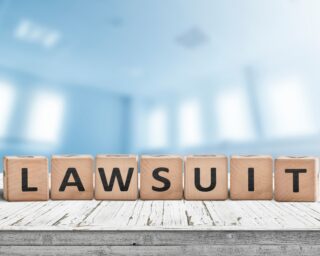
A parent or guardian of an infant who developed NEC after drinking contaminated baby formula can file a lawsuit against the manufacturer within two years of the child’s diagnosis. NEC is a life-threatening bacterial infection that inflames the intestinal tissue. The NEC baby formula lawsuit currently involves Mead and Abbot baby formulas Enfamil and Similac, which allegedly put premature babies at risk of necrotizing enterocolitis (NEC). In the lawsuits, plaintiffs claim that the manufacturers failed to warn consumers about the possible dangers of their cow milk-based products.
What Causes Necrotizing Enterocolitis (NEC)?
Scientists and medical practitioners still don’t know the exact causes of necrotizing enterocolitis. However, they understand that NEC targets premature babies with weaker immunity. The infants’ bodies are yet to develop proper defense systems to combat life-threatening infections.
Infants have weaker abdominal organs, which take time to heal when exposed to a gastrointestinal infection. So, NEC infections can have devastating effects on a premature baby.
It is also hard for oxygenated blood to reach the intestines if the baby is born prematurely. Reduced blood circulation can impair intestinal walls, putting the infant at risk of infection. The risk becomes even more pronounced if the infant feeds on a cow’s milk-derived baby formula that is hard to digest.
Understanding Necrotizing Enterocolitis
NEC is a serious bacterial infection of the intestines that is common in premature babies. When it attacks the intestinal walls, it leaves them inflamed and weakened. Its main symptoms include diarrhea (with traces of blood), abdominal swelling and pain, yellow or green vomit, difficulty breathing, blood pressure issues, and body temperature changes. The infected infant may also experience lethargy, loss of appetite, and slow weight gain.
As NEC advances, it causes holes in the infant’s intestine. The holes allow bacteria to seep into the bloodstream or lower abdomen, putting the baby at risk of further infection. Most premature babies develop NEC between two and six weeks after birth. While some may have mild symptoms, others have life-threatening symptoms.
The term ‘premature babies’ here refers to infants born before the pregnancy is 37 weeks, weighing below five and a half pounds. These infants are usually fed through enteral feeding, involving placing a tube directly into the stomach.
Who Qualifies to File an NEC Baby Formula Lawsuit?
Understanding product liability laws can help determine whether you qualify to file a baby formula lawsuit. In Nevada, manufacturers, retailers, and distributors are potentially at-fault parties in product liability cases.
The law requires them to put adequate measures in place that ensure consumer goods are safe for consumption and do not have any malfunctions that could put people’s lives at risk. So, you can bring a product liability lawsuit or claim against the manufacturer and other parties involved in the distribution chain if you or a loved one gets hurt by a malfunctioning or hazardous product.
The lawsuit can help you pursue compensation for any injuries or losses you or your loved one suffered. It focuses on holding the manufacturer or responsible party accountable for negligence or wrongdoing.
Before filing a product liability claim in Nevada, you should understand the grounds for pursuing it. Common claims you can pursue in the suit include fraud, intentional misrepresentation, strict liability, negligence, and breach of duty of care or warranty.
Nevada product liability law also allows you to sue stakeholders in the product distribution chain (wholesalers, retailers, and distributors) for compensatory damages. These damages may comprise medical costs, lost wages or income, pain and suffering, diminished quality of life, and loss of enjoyment of life. You may also receive punitive damages in a successful product liability lawsuit if the responsible party’s actions were motivated by malice, oppression, or fraud.
Suing Enfamil and Similac Manufacturers
A product liability lawsuit against Enfamil and Similac manufacturers can help hold the manufacturers accountable for failing to warn you (and other consumers) about the risk of their baby formula. If your premature infant developed NEC after consuming the baby formula, you may have legal grounds for filing an NEC lawsuit.
Premature babies are usually placed in a special intensive care unit until declared fit to go home with their parents. During this period, they typically get fed baby formula through a tube. If your premature baby is fed a formula based on cow’s milk, the baby may develop NEC, giving you grounds to file a lawsuit.
You may have unknowingly fed the baby the toxic formula after getting the baby out of the hospital. If this is the case, you should compile any proof of purchase, including the packaging boxes and receipts, to serve as evidence in the lawsuit.
Proving Product Liability in the NEC Toxic Baby Formula Lawsuit
Under Nevada law, you can pursue compensation for injuries and losses caused by a toxic product, such as the Enfamil and Similac baby formula. You will sue the responsible manufacturers for breach of express warranty. An express warranty is usually a guarantee, whether orally or in writing, about a product’s safety, efficacy, and performance.
In the NEC baby formula lawsuit, you will sue the manufacturers for giving false guarantees on the instructions and labeling of the baby formula. If there are adverts on any media platform, you can also sue them for falsely advertising the product without mentioning its side effects.
When making arguments in court with the help of a lawyer, you will have to demonstrate that your premature baby got NEC after consuming the toxic baby formula. Your evidence will comprise medical diagnosis reports, receipts of medical expenses, and the infant’s birth records.
Baby Formula Brands Involved in NEC Lawsuits
Abbot and Mead are the defendants mentioned in NEC’s toxic baby formula lawsuits. They are involved in the lawsuit because their baby formulas, Enfamil and Similac, contain cow’s milk, which is believed to be toxic to premature babies.
It is alleged that these manufacturers continue to produce toxic baby formulas despite what research says about their products. In particular, the research found that Enfamil and Similac baby formulas make premature infants prone to necrotizing enterocolitis, a bacterial gastrointestinal infection. Researchers also found that the risks of NEC are significantly lower in newborns fed human (breast) milk or baby formula based on human milk.
The toxic baby formula lawsuits mention Similac baby formulas, including Special Care, NeoSure, Human Milk Fortifier, Alimentum Expert Care, and Human Milk Fortifier Concentrated Liquid. Other named Similac products include Special Care 20, 24, and 24 High Protein, Liquid Protein Fortifier, Human Milk Fortifier Hydrolyzed Protein, Special Care 30, and Human Milk Fortifier Powder.
Several baby formulas under the Enfamil brand are also listed in the lawsuits. These products include Human Milk Fortifier Powder, Human Milk Fortifier Acidified Liquid, Enfacare Powder, Milk Fortifier Liquid and NeuroPro Enfacare.
Plaintiffs in the lawsuits allege that these products do not have warnings on their labels. They also do not come with guidelines or instructions for parents with premature babies. Even the specialized baby formulas for premature infants lack warnings for the side effects.
Have Enfamil and Similac Baby Formulas Been Recalled?
A product can get recalled for defects that could put lives at risk. The FDA (Foods and Drug Administration) considers recalls as techniques for correcting or removing products that violate its laws.
When recalls are voluntary, distributors and manufacturers need to single out products they suspect can harm people’s well-being and health. However, if the manufacturer fails to conduct a recall, the FDA will issue the company a recall.
When manufacturers receive a recall notice, they must report the removal or correction of the defective product to the FDA. The FDA will only approve the removal or correction if it aims to reduce the product’s health and well-being risks.
Summaries of the most significant recalls in the medical industry are available on the FDA website. You can scan the lists to determine if you used (or are using) a recalled product.
Currently, Similac and Enfamil do not have any product recalls for toxicity. It is yet to be clear whether the baby formula brands will get recalled for putting premature babies at risk of NEC.
When to File the Toxic Baby Formula Lawsuit
You can file an NEC baby formula lawsuit once a product liability attorney reviews your case and determines you are eligible for compensation. But you must file it within certain time limits. Under product liability law, these time limits are the statute of limitations.
You can only seek damages for an injury or a loss if your lawsuit gets filed within the statute of limitations, which varies by state. If this window passes, the court will not accept your lawsuit.
In Nevada, you have two years from the date of your injury to bring a personal injury claim against a defendant. It might apply to the NEC lawsuit if your premature baby suffered long-term injuries from consuming Enfamil or Similac baby formula.
If the hospital or healthcare provider fails to exercise a duty of care when feeding your infant, you can sue them for medical malpractice. The statute of limitations for this particular case is three years. It begins from the date the medical provider acted negligently. The time limit is also two years after your baby was diagnosed with NEC or should have been diagnosed with the infection.
Most NEC toxic baby formula lawsuits revolve around product liability, since they focus on the toxicity of baby formulas. The time limit for pursuing compensation for product liability is two years from the day the product exposed your child to NEC.
If the infant died due to complications caused by NEC, the parent could file a wrongful death lawsuit against Abbott and Mead. The parent will have two years from the date of death to file the suit.
Are There Exceptions to the Time Limit for Filing the Lawsuit?
The statute of limitations imposes limits on when plaintiffs can file lawsuits or claims to seek compensation. It helps victims of personal injury cases begin the compensation process early and document their injuries or losses in preparation for the lawsuit.
In Nevada, it usually starts on the date the victim suffered an illness or injury from someone else’s negligence or wrongdoing. However, the court can make exceptions for your case under various circumstances. Talk to your personal injury attorney about how these exceptions could impact your case.
With these exceptions in place, you can get more time to gather evidence that demonstrates the other party’s liability in the lawsuit. You can also use this time to seek proper medical attention for your infant.
In particular, the discovery rule may apply to the NEC baby formula lawsuit if it took a while for your baby to be diagnosed with NEC. So, the time limit will start on the diagnosis date. It will last two years, giving you ample time to pursue the lawsuit.
With the help of a lawyer, it is also possible to have the time limits tolled. Doing this will stop the statute of limitations from taking effect within a specified time limit. However, this exception only applies to a few personal injury cases.
The Nevada medical malpractice law gives parents or legal guardians the right to file lawsuits against parties responsible for their children’s injuries or illnesses. Though the parents must pursue the case within the time limits, the court may allow them to pursue it later if other injuries or illnesses develop as the child grows. However, they will have to file a lawsuit for any illnesses or injuries diagnosed at present.
Your lawyer can also use the case facts to your advantage when holding Enfamil or Similac manufacturers liable for putting your premature infant at risk of NEC. Whichever strategy is used, your lawyer must demonstrate that a valid reason for filing the lawsuit once the deadline has passed exists.



